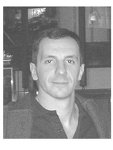12 Feb What Is the Ideal Aspirin Dose for Cardiac Health and Cancer Prevention?
MedicalResearch.com Interview with:
Giuseppe Biondi-Zoccai MD
Department of Medico-Surgical Sciences and Biotechnologies
Sapienza University of Rome
Corso della Repubblica
Latina, Italy
Medical Research: What is the background for this study?
Dr. Biondi-Zoccai: The main premise of our work is the historically established benefit of aspirin to reduce the risk of cardiovascular events in apparently healthy people, which is however substantially offset by the risk of bleeding. More recently, several pieces of evidence have highlighed the cancer benefits of aspirin, namely its capability of reducing the risk of cancer, in particular cancer in the colon and rectum, as well as deaths due to such cancer. Despite these potentially momentous benefits, there is uncertainty on which dose and preparation of aspirin is best suited to reduce cardiovascular and cancer events, while minimizing bleeding. Indeed, several dosages of aspirin have been tested and are commercially available (for instance from as little as 50 mg per day to more than 300 mg per day). In addition, aspirin is available in different pharmacologic preparations, for instance with specific gastro-protective coatings or controlled-release features, which may have impact on safety and efficacy.
Medical Research: What are the main findings?
Dr. Biondi-Zoccai: Our results, building upon the recent research work of the US Government sanctioned Preventive Services Task Force (USPSTF), suggest that a dosage of aspirin of 100 mg per day, combined with enteric-coating, is most likely to be beneficial to reduce the risk of cancer and minimize stomach bleeding. The results, as often in biomedical research, are not however 100% certain, and thus this increased likelihood of benefit must be viewed in the context of our study design, as well as other procedural and patient factors.
Medical Research: What should clinicians and patients take away from your report?
Dr. Biondi-Zoccai: There are a few alternative scenarios for clinicians and patients. First, the data in favor of the anti-cancer effects of aspirin in apparently healthy people are promising, but not conclusive at 100%, and the cardiovascular benefits are there but may be offset by the bleeding risk. Accordingly, and to put it bluntly, if clinicians and patients do not concede that aspirin may have a favorable risk-benefit profile for cancer and cardiovascular events, they may disregard altogether our report. Conversely, if they are ready to embrace aspirin therapy to prevent cancer and cardiovascular events (as the USPTFS seems willing to do), than our work may inform them, notwithstanding its inherent limitations, on which dose and formulation is most likely to achieve such benefits.
Medical Research: What recommendations do you have for future research as a result of this study?
Dr. Biondi-Zoccai: The saga of aspirin in primary prevention (from cardiac to cancer benefits) reminds us of the serendipity and incremental nature of science. Accordingly, the evidence base on aspirin must continue to grow. We may humbly recommend to focus current and future research efforts also on aspirin dose and preparation, and not only on comparative effctiveness and safety versus placebo or standard care.
Medical Research: Is there anything else you would like to add?
Dr. Biondi-Zoccai: Aspirin represents a paradigmatic example of the ongoing quest for treatments capable of improving wellbeing and saving lives. Our attention on such a drug will continue, and possibly expand, with the availability of technological tools to conduct simple yet massive research projects, for instance using smartphones. So stay tuned for more!
Citation:
Lotrionte, Marzia et al.
Progress in Cardiovascular Diseases , Volume 0 , Issue 0 ,
DOI: http://dx.doi.org/10.1016/j.pcad.2016.02.001
Published Online:February 03, 2016
[wysija_form id=”5″]
Giuseppe Biondi-Zoccai MD (2016). What Is the Ideal Aspirin Dose for Cardiac Health and Cancer Prevention?
Last Updated on February 12, 2016 by Marie Benz MD FAAD

